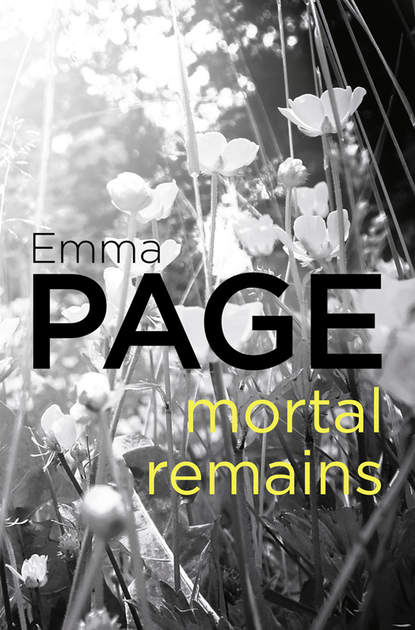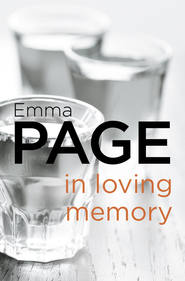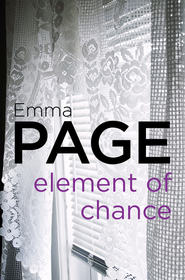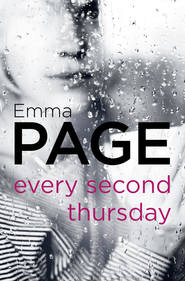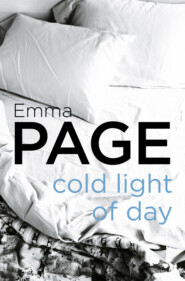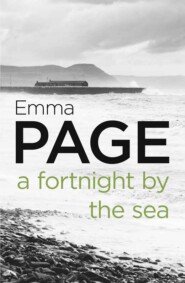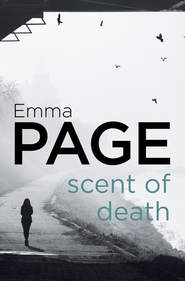По всем вопросам обращайтесь на: info@litportal.ru
(©) 2003-2024.
✖
Mortal Remains
Автор
Год написания книги
2018
Настройки чтения
Размер шрифта
Высота строк
Поля
In the hushed atmosphere of the Ladies’ Coat Salon at York House, Claire stood before a long mirror, contemplating with an air of profound concentration the coat she had almost decided on. Jill Lingard, who was attending to her, stood near by without speaking; she knew better than to interrupt with some comment of her own when matters had reached this critical stage.
Claire turned this way and that, studying the slender, classic cut of the coat. Of supple, lightweight tweed, a subtle blend of soft greys and misty blues, with a touch of dark chestnut; suède-covered buttons in the same dark chestnut, an elegant suède trim edging the pockets.
She tilted her head in thought. The coat was undeniably expensive, but not, she finally judged, too expensive; she could just about get away with it. Edgar wasn’t a man to throw his money around, nor to stand silently by while others threw it around on his behalf, but neither could he be described as close-fisted. Any purchase within reason and she would hear no complaint when he studied the monthly statement from their joint bank account.
She gave Jill a smiling nod of decision. ‘I’ll take it.’
‘I’m sure you’ve made the right choice,’ Jill assured her with total sincerity. It was always a pleasure to attend to Mrs Holroyd. She helped her off with the coat. ‘Would you like us to deliver it?’
‘Yes, please.’ Claire stood pondering. ‘A suède beret might be an idea for windy days, it might go well with the coat.’
‘They’ve got some beautiful suède berets in the millinery department,’ Jill told her. ‘They’ve just come in. I’m sure you couldn’t do better than one of those.’
A few minutes later, when Claire had gone off in search of her beret and there was a temporary lull in the department, another assistant, a woman who had recently joined the staff, middle-aged, with a sharp, knowing face, came over to where Jill was replacing coats on a rail.
‘I saw you serving Claire Holroyd,’ she said. Claire Holroyd, Jill registered, not Mrs Holroyd. ‘Do you know her?’ Jill asked.
‘I can’t exactly say I know her,’ the assistant answered with a movement of her shoulders. ‘I worked with her at Hartley’s a few years back.’ Hartley’s was a high-class establishment not far from York House, combining the functions of stationer, newsagent, bookstore and gift-shop. ‘I suppose I knew her as well as anyone there – and that’s not saying much. She was never one to stand around chatting, she was always reserved. She came to Hartley’s straight from school, she worked there until her accident.’
‘What accident was that?’
‘She was in a car crash. Eight years ago now, that must be. She never went back to Hartley’s after she was better, she got herself a job with the council, in the housing department.’
‘She must have been really beautiful as a girl.’ Jill felt not the faintest twinge of envy, securely content with her own ordinary share of looks; Norman thought her pretty and that was enough.
‘The accident took the bloom off her all right,’ the assistant said on a note of satisfaction. She leaned forward confidentially. ‘I saw a piece in the local paper a couple of weeks back, about Claire’s old boyfriend. He’s back in Cannonbridge, got himself a senior job in Calthrop’s, the estate agents, that’s where he worked before. Ashworth, his name is, Robert Ashworth, he’s a qualified surveyor.’
‘Ashworth,’ Jill repeated. ‘My grandfather read me that piece out of the paper. He worked at Calthrop’s till he retired, he’s always interested in anything to do with the firm.’
‘Claire was never actually engaged to Robert Ashworth,’ the assistant enlarged. ‘But we all took it for granted they’d get married. Then she was in the car crash and that seemed to be the end of it – don’t ask me why, I never did know the ins and outs of it. Ashworth left Cannonbridge and got a job somewhere else. I heard he got married not long afterwards – on the rebound, I shouldn’t wonder. The daughter of some businessman, so they said, pretty well-heeled.’ She slanted at Jill a look full of meaning. ‘Robert Ashworth’s a good-looking man, a lot better looking than Edgar Holroyd.’ Her smile was laced with malice. ‘I wonder if Edgar knows Ashworth is back.’
A few minutes later Diane Holroyd drove into the York House car park. Her own little car was in for a service, she was temporarily using one of her father’s vehicles. She got out of the car and walked round towards the front of the store. As she turned the corner of the building she saw her sister-in-law come out through the swing doors. Claire didn’t see her, she set off in the opposite direction. Diane walked slowly on, looking fixedly after the elegant figure moving gracefully away into the distance.
At a quarter past twelve Claire left the public library. Her face wore a look of satisfaction; she had managed to pick up no fewer than four books on her college reading list.
The weather was fine, pleasantly warm. She strolled without haste towards the bus stop. Never any rush to get back to Fairbourne in the middle of the day, Edgar was never at home for lunch during the week.
Ahead of her on the other side of the road lay the imposing premises of Calthrop’s, auctioneers and estate agents. She glanced over at the frontage, ran her eye along the windows, as she had done lately whenever she went by, ever since the day towards the end of August when she had come across the paragraph about Robert Ashworth in the local paper.
She came to an abrupt halt, her heart thumping. She stared across at the middle window on the first floor. A tall man, thirty-five or so, stood with his head half turned away, talking to someone behind him. He moved his head and she saw his face: Robert Ashworth, almost exactly as she remembered him. Her heart beat so fiercely she feared she might faint.
Robert glanced down, his eye lighted on her. He froze. She stood looking up at him, incapable of movement.
He leaned forward, smiled down at her, raised a hand in greeting. She felt a great rush of release. She smiled, waved back.
A young man carrying a sheaf of papers came up to Robert, spoke to him. Robert turned from the window, casting a final look in her direction.
On the bus home she sat lost in thought. The moment she closed the front door of Fairbourne behind her she dumped her things in the hall and went down to the basement, kept in immaculate order by her husband. She went to the shelves where he stacked old newspapers and magazines until he took them along to the recycling depot. It didn’t take her long to find what she was looking for: the local weekly paper from the end of August.
She knew precisely where to find the item about Robert’s appointment: halfway down the third right-hand page. She gazed intently at Ashworth’s image, sharp and clear for a newspaper photograph. She scanned the paragraph with close attention but it yielded nothing fresh, no forgotten detail. Only the same facts implacably confronting her: Ashworth was married with two young children, his family would be joining him later.
She restored the paper to the pile and went slowly back up the stairs. She changed her clothes, made herself a snack lunch before setting diligently about household chores. She was busy in the sitting room when the phone rang. Her face lit up. She ran into the hall, snatched up the receiver, spoke her number.
‘Claire?’ asked a male voice at the other end.
CHAPTER 3 (#ulink_1b9fab41-2c06-59f1-b378-1ab8eed7e813)
Summer gave way to autumn, the leaves turned gold. Dusk and dawn were veiled in mist, the pungent smoke of garden bonfires rose blue on the weekend air.
The Acorn dinner-dance marking the centenary of the club took place on the last Friday in October. A glittering occasion, much talked over before and after, fully written up and photographed for the local press.
On the evening of the second Thursday in November Harry Lingard left work and drove home in his little van. He liked to leave promptly, there was always some pressing chore or urgent piece of business awaiting him.
The bulk of his spare time during the latter part of every week was taken up delivering copies of the Bazaar, a local freesheet, long established; he had been one of the earliest recruits to the distribution team. His territory had grown over the years as distributors in adjoining districts fell by the wayside, and his round was currently the largest and certainly the best conducted; it earned him a very useful sum. He liked to vary the way in which he covered his territory, it helped to keep his interest alive. He prided himself on getting his deliveries finished by Saturday evening. Some distributors were still shouldering their satchels on Sunday morning; Harry considered that a slack way of going on.
The bundles of papers were dropped off at his house around two o’clock on Thursday afternoon, they were stacked on the bench in the front porch, which he left unlocked for the purpose. Before he set off on his first delivery he always glanced swiftly through the For Sale columns, in order to be the first, if possible, to snap up some bargain he could work on, re-sell privately or through the auction rooms. He had often struck lucky in this way.
At six-thirty on this nippy Thursday evening he was ready to leave on his first foray, the official satchel – scarlet, with the Bazaar logo in black and white – slung over his shoulder. He never carried too heavy a load, always took time between trips, if he felt the need, to sit down in his kitchen for a hot drink or a snack. He took care to dress sensibly against the weather. This evening he wore woollen mittens and woollen cap nattily striped in brown and white; his feet were in black trainers, comfortably padded. The collar of his quilted grey jacket was turned up round his ears. In one lapel he sported an outsize red poppy – next Sunday was Remembrance Day, a notable point in Harry’s year.
As he went out, locking the door behind him, he gave his customary good-neighbour glance over at the adjoining semi, checking all was in order. The house was in darkness, it had stood empty since the last tenants had left two weeks ago, to move to another town.
He was halfway through his second trip when he ran into his granddaughter and her boyfriend on their way to a cinema. ‘I’ve just been to tea at Norman’s,’ Jill told him. ‘Mrs Griffin invited me. She went to a lot of trouble, she laid on a marvellous spread.’ She eyed him teasingly. ‘Isn’t it about time you thought of inviting Norman to tea?’
Harry gave her a quelling look. Norman stood by in silence, his expression tinged with amusement. ‘What about next Sunday?’ Jill’s tone was light but Harry saw by her eye that she meant business.
‘Next Sunday’s no good.’ He couldn’t repress a note of satisfaction. ‘I’m going over to see Cyril Shearman in the afternoon, he’ll be expecting me.’ He had served in the army with Shearman, now a widower a few years older than Harry, no longer in good health; he lived in a retirement home in pleasant rural surroundings a few miles from Cannonbridge. Harry went over to see him every couple of months, he certainly wouldn’t miss seeing him on Remembrance Sunday.
‘No problem,’ Jill batted back at once. ‘We’ll come to supper instead.’ Her eyes sparkled with good-humoured determination. You’ll accept Norman one day, her look told him, I’ll make sure you do.
All at once he caved in. ‘All right then,’ he agreed. An engagement, after all, was very far from being the same thing as a marriage. Young women had been known to change their minds. In the meantime he had no intention of falling out with his only granddaughter over such a trifle as Sunday supper.
He plastered a smile on his face. ‘Next Sunday it is. I’ll see you both around seven-thirty.’
Remembrance Sunday dawned bright and clear, perfect weather for the annual parades. Harry would be marching to a special church service alongside other veterans, banners held proudly aloft, brass bands in stirring attendance.
He gave his shoes an extra shine, put on his best dark suit, a spotless white shirt freshly laundered by himself. He pinned his campaign medals to his chest, his poppy on one lapel, the gold regimental badge he always wore, on the other. On his little finger the gold signet ring with his entwined initials that his wife had given him the day they were married; on his wrist the gold watch bought for him two years ago on his seventieth birthday, engraved on the back with name and date, a joint present from Gareth and Jill.
When he was ready he surveyed himself with satisfaction in the long mirror of his wardrobe, then he let himself out of the house and set off for the rallying-point at a briskly military pace.
Tom Mansell’s housekeeper had taken particular pains with today’s lunch. Only the family, Mansell had told her, but a very special occasion. It wasn’t till the coffee stage that Mansell rose to his feet with an air of ceremony.
‘Thirteen years ago today,’ he said, ‘I took control of Dobie and Mansell’s. I give you a toast.’ He lifted his coffee-cup. He allowed nothing stronger than coffee in his house, he had been raised in a strictly teetotal household. ‘To the next thirteen years!’ The others echoed the toast, raised their cups, smiling.
Mansell remained on his feet. ‘I give you another toast. To the new yard, in Wychford!’ He saw the quick movement of all three heads, the look of surprise on the face of Diane and Stuart. But not on Lester’s face. Lester’s expression showed satisfaction, confirmation of something already guessed. Smart lad, Mansell thought with approval, no flies on Lester. ‘We’ll be starting the ball rolling any day now.’ Mansell raised his cup again. ‘To the future!’
Before setting off to see Cyril Shearman Harry checked that all was ready for supper. Traffic was light and he reached the home shortly after three. Shearman was, as always, pleased to see him, they sat in the almost deserted lounge, talking over old times. At half past four several residents came down from their rooms for tea and cake, dispensed from a trolley by a member of staff.
Shearman nodded over in the direction of one of the residents, an old woman with a weatherbeaten face, a countrified look, making her uncertain way into the lounge, leaning on a stick. ‘That’s Mrs Vaile,’ Shearman told Harry. ‘She came here a few weeks back from one of the company’s other homes.’ There were a number of homes under the same management, scattered over a wide area; residents could move, within reason, between one home and another. Mrs Vaile had sold her own house in the summer and had gone initially to a company home by the sea.





